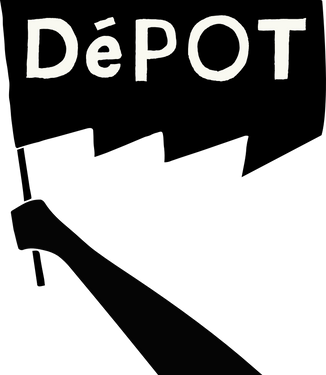
Cristina Sucala
The author, a practicing architect registered with the French Architect's Chamber, based in Paris, is specialised in twentieth century heritage at ENSA PARIS BELLEVILLE and currently a phd student at Ironbridge International Institute for Cultural Heritage, at the University of Birmingham, UK. She has initiated and been part of the process of heritagization of Petrila Colliery, in Romania, from its’ beginnings, in 2012. The team, composed of other four architects: Ilinca Paun-Constantinescu, Mihai Danciu, Dragos Dascalu and Ina Stoian has gathered around them, through the yearly workshops, an impressive group of young practitioners and students, from Romania, France and Germany. Cristina is also a member of CILAC association for industrial heritage in France, and TICCIH. Publications: 2020 - Publication in Transylvania Nostra review, No. 4/2020 : The place of industrial heritage in the Romanian Authorised Heritage Discourse. The case of Petrila Coal Mine 2018 - Participation at the TICCIH Congress in Santiago de Chile, 2018 with the presentation: “Industrial heritage-based regeneration in a post-socialist country: Building Up A Path Towards A Sustainable Strategy In Petrila, Romania 2017 - An Activist Perspective on Industrial Heritage in Petrila, a Romanian Mining City, The Public Historian, Vol. 39, No. 4, pp. 114–141 (November2017). 2016 - Participation at the conference “ Inheriting the City : Advancing Understandings of Urban Heritage”, Taipei, Taiwan, with the presentation of the Petrila project: «“The vanishing coal mine: Could a coal mine help re-invent a city against an administration that doesn’t care about heritage?» 2014 - «A Biennale of Knowledge» published in the 2014 issue of The journal of studies in History and Theory of Architecture, published by the Department of Architectural History & Theory and Heritage Conservation at ‘Ion Mincu’ University of Architecture and Urbanism in Bucharest, Romania 2013 - Invited Presentation «Industrial Heritage as an urban regeneration resource. Romanian-French Workshop in Petrila, Romania» during the Water Plant Days in Suceava, Romania. A former Water Plant reconverted into a Cultural Centre) 2010 - Research activity on the urban heritage of the garden city of Chatenay-Malabry in France at ENSA PARIS-BELLEVILLE
Sessions in which Cristina Sucala participates
martes 30 agosto, 2022
Sessions in which Cristina Sucala attends
domingo 28 agosto, 2022
Explore the banks of the Lachine Canal, the cradle of industry in Canada. Benefiting from access to hydraulic power, maritime and rail transport, large numbers of industrial facilities were built along its length. Thousands of Montrealers have lived and worked there. The banks of the canal are now a linear park, and the site of many residential developments.A walking tour designed and guided by Heritage Montréal. The visit will be in French and will...
You are invited to the McGill-Queen’s University Press book launch of “Deindustrializing Montreal: Entangled Histories of Race, Residence and Class” on Sunday August 28th (1-3pm) at Batiment 7’s
Join the conference organisers and TICCIH board members for a welcome cocktail and some festive words of introduction, in the former forge of the École technique de Montréal, founded in 1909, now part of the Université du Québec à Montréal campus.
lunes 29 agosto, 2022
During the Industrial Revolution coal was the most important energy source for both homes and industries. At the time, coal mining created strong regional industrial identities and mentalities, as well as industrial images and imaginaries in the eyes and minds of external observers. Such identities and ideas of coal would go on to shape industrial landscapes and communities.The papers presented in this session investigate the social and economic changes that were triggered by ...
This session is about the “hard facts” of conservation. It aims to draw together technical knowledge from related fields. Industrial conservation specialists rely on specialised knowledge and may sometimes not be aware that there is expertise and proven good or best practice in related fields. The transferring of knowledge from related engineering, construction preservation and architectural conservation specialists can serve the purpose of promoting and securing future preservation of ...
This session is about the “hard facts” of conservation. It aims to draw together technical knowledge from related fields. Industrial conservation specialists rely on specialised knowledge and may sometimes not be aware that there is expertise and proven good or best practice in related fields. The transferring of knowledge from related engineering, construction preservation and architectural conservation specialists can serve the purpose of promoting and securing future preservation of ...
During the Industrial Revolution coal was the most important energy source for both homes and industries. At the time, coal mining created strong regional industrial identities and mentalities, as well as industrial images and imaginaries in the eyes and minds of external observers. Such identities and ideas of coal would go on to shape industrial landscapes and communities.The papers presented in this session investigate the social and economic changes that were triggered by ...
This roundtable will examine innovative and creative pedagogical approaches and partnerships that have created opportunities for experiential learning and community engagement, while enabling successful delivery of programs and courses in industrial heritage. In recent years and with the ongoing situation with the COVID-19 pandemic, undoubtedly online and distance teaching and learning are a top priority. The discussions will offer an analytical dialogue on digital learning strategies and ...
During the Industrial Revolution coal was the most important energy source for both homes and industries. At the time, coal mining created strong regional industrial identities and mentalities, as well as industrial images and imaginaries in the eyes and minds of external observers. Such identities and ideas of coal would go on to shape industrial landscapes and communities.The papers presented in this session investigate the social and economic changes that were triggered by ...
Si la vallée du canal de Lachine a été le berceau de l’industrialisation canadienne, la géographie industrielle métropolitaine ne s’y est pas confinée, peu s’en faut, Outre les grandes concentrations d’entreprises des quartiers centraux, elle est constituée des réseaux infrastructuraux, d’une douzaine de centrales hydroélectriques et des ensembles manufacturiers disséminés dans une quinzaine de petites villes aujourd’hui intégrées dans l’aire métropolitaine. La conférence proposera un surv...
martes 30 agosto, 2022
According to Rodney Harrison, “in the spirit of greater cross-disciplinary engagement, there is […] a pressing need to pay more attention to non-anglophone (and, indeed, non-Western) heritage literatures, histories and traditions” (2013: xiii), when we deal with critical approaches to heritage. This need is even greater when the scientific research focuses on countries such as Romania, Czechia, Bulgaria or Poland where Industrial Heritage, for example, is ignored and where the mechanism an...
During the Industrial Revolution coal was the most important energy source for both homes and industries. At the time, coal mining created strong regional industrial identities and mentalities, as well as industrial images and imaginaries in the eyes and minds of external observers. Such identities and ideas of coal would go on to shape industrial landscapes and communities.The papers presented in this session investigate the s...
Community lies at the heart of the processes of industrialization and de-industrialization. From labor to landscapes and from social fabric to ecological communities, scholars regularly examined the industrial community as core to industrial heritage. However, while social scientists have long studied industrial communities, only recently has there been a general consensus of respecting and working with communities themselves. Even so, working “with” a community on industrial heritage has ...
Drawing on case studies from diverse social, cultural, and political contexts the papers in this session discuss the different responses to maintaining and assessing not only the physical sustainability of industrial heritage but also the sustainability of its social values and meaning.
This session focuses on company towns from the perspective of urban planning. “Company towns” are here defined as single-enterprise planned communities, usually centered around a single industry, where a company commissions an urban plan, builds housing for its workers, and sets up recreational, commercial, institutional or community facilities. While these are now endangered by a second wave of deindustrialization, we observe that, aside studies or monographs of individual towns that popu...
According to Rodney Harrison, “in the spirit of greater cross-disciplinary engagement, there is […] a pressing need to pay more attention to non-anglophone (and, indeed, non-Western) heritage literatures, histories and traditions” (2013: xiii), when we deal with critical approaches to heritage. This need is even greater when the scientific research focuses on countries such as Romania, Czechia, Bulgaria or Poland where Industrial Heritage, for example, is ignored and where the mechanism an...
Past efforts to conserve and interpret industrial heritage have rarely acknowledged the role of industry causing damaging environmental change. But todays obvious worldwide climate change inevitably impacts our thinking about conservation. This is why we propose a Roundtable session to encourage people to take a fresh look at environmental impacts of industrial heritage.Already in the 1970s narratives of industrial history as a succession of triumphs began to be qu...
Drawing on case studies from diverse social, cultural, and political contexts the papers in this session discuss the different responses to maintaining and assessing not only the physical sustainability of industrial heritage but also the sustainability of its social values and meaning.
Efforts to preserve industrial heritage occurs in a socio-economic and political context. But what is being preserved and for whom? And, relatedly, what is the relationship between industrial heritage sites and the deindustrialized working-class communities that often adjoin them? The keynote will consider the ways that the preservation of Montreal’s Lachine Canal, Canada’s premier industrial heritage site, has enabled gentrification processes that have forc...
miércoles 31 agosto, 2022
L’activité industrielle est un puissant facteur de concentration de population. En témoignent les sites antiques ou médiévaux étudiés par les historiens, souvent proches des mines, des carrières ou des chantiers de construction. À partir du XVIIIe siècle, cependant, avec les premiers développements industriels, des liens forts se tissent entre les usines et diverses formes d’urbanisation. De la variété de rapports que construit l’industrie avec la ville ou, plus largement, avec les lieux d...
The Global and Local Section of TICCIH aims to continue its collaborative work by organising a separate session within the framework of the 18th congress in Montreal, Canada. Following its previous sessions centred on various subjects at the Freiberg, Tampere, Taipei and Lille TICCIH conferences, this time the Section will focus on the identity of industrial civilisation in the post-communist countries in Central and Eastern Europe from the angle of its industrial heritage, lost or preserv...
L’architecture du XXe siècle, par les méthodes de construction, les matériaux utilisés et la conception des ouvrages est partie prenante du patrimoine industriel. S’intéresser aux nouveaux matériaux, ceux apparus et produits depuis le XIXe siècle, participe de cette connaissance de l’industrie et de ses traces matérielles et immatérielles.Lancée en janvier 2019 pour quatre ans, le programme de recherche ARCHIPAL, «&n...
Examples from several continents, in Europe, South America, North America, Turkey, show strong continuity in the objectives that govern the reuse of industrial buildings, for example the concern to take into account the industrial heritage as a resource for urban and territorial development, or the close links that it has with culture, whether it is used to house cultural facilities or more simply to bear witness to the history and memory of the place. Increasingly, policies for the reuse ...
The Global and Local Section of TICCIH aims to continue its collaborative work by organising a separate session within the framework of the 18th congress in Montreal, Canada. Following its previous sessions centred on various subjects at the Freiberg, Tampere, Taipei and Lille TICCIH conferences, this time the Section will focus on the identity of industrial civilisation in the post-communist countries in Central and Eastern Europe from the angle of its industrial heritage, lost or preserv...
Examples from several continents, in Europe, South America, North America, Turkey, show strong continuity in the objectives that govern the reuse of industrial buildings, for example the concern to take into account the industrial heritage as a resource for urban and territorial development, or the close links that it has with culture, whether it is used to house cultural facilities or more simply to bear witness to the history and memory of the place. Increasingly, policies for the reuse ...
The Soulanges Canal is an infrastructure, located on the north shore of the St. Lawrence, which was opened to maritime traffic in 1900, succeeding the "old canal" of Beauharnois (established since 1843 on the north shore of the St. Lawrence). The Soulanges Canal was abandoned in 1959, when the current St. Lawrence Seaway linking the Great Lakes to the Atlantic opened.The Soulanges Canal was designed by the engineer Thomas Monro (1831-1903). Of Irish origin but trained in civil engin...
Les friches industrielles sont devenues des figures urbaines ordinaires et témoignent, dans les anciennes puissances industrielles mais aussi dans les pays du Sud, des transformations du tissu urbain ainsi que du fait qu’il y ait processus de qualification, déqualification et, parfois, requalification de ces lieux. Les transformations qui les caractérisent structurent aujourd’hui d’indéniables enjeux politiques, sociologiques, spatiaux et culturels.Dans le cadre de ce congrès dont l...
The Global and Local Section of TICCIH aims to continue its collaborative work by organising a separate session within the framework of the 18th congress in Montreal, Canada. Following its previous sessions centred on various subjects at the Freiberg, Tampere, Taipei and Lille TICCIH conferences, this time the Section will focus on the identity of industrial civilisation in the post-communist countries in Central and Eastern Europe from the angle of its industrial heritage, lost or preserv...
This session addresses a perpetuating disjunction between conceptualisation of heritage and heritage making in heritage studies vis-a-vis heritage management and conservation of industrial heritage sites. There is an inevitable impact of this disjunction on advancing policy in people- and place-centred approaches to heritage futures. This session aims to explore ways in which tangible and intangible traces of the past can be utilised creatively in shaping desirable places to dwell and work...
In this lecture, I would like to talk about deindustrialised communities, heritage and memory in the context of right-wing populism. Drawing on studies of memory and heritage, I argue that right-wing populists have cornered the market on talking about the past of deindustrialised communities. They have successfully misrepresented this rich and complex history to fuel rage, resentment, fear and reactionary nostalgia. Indeed, ‘the past’, and in particular the industr...
jueves 1 septiembre, 2022
The proposed session will examine the unfolding relationship between industrial heritage and those left behind in adjoining deindustrialized working-class areas. The four papers seek to understand the socio-economic and political impact of recognizing the industrial past in the present. Two guiding questions will be asked. Can industrial heritage support those ‘left behind’ in deindustrialized areas where nothing, or very little, has filled the economic or cultural vacuum? Has industrial h...
Many of the remained big scale Industrial heritage in Taiwan were the products of the Japanese colonial period between 1895 and 1945, which spans the first half of the twentieth century. This fifty-year colonial industrialisation is arguably Taiwan’s most influential industrial heritage because it began a rapid process of modernisation that is continuing today. The key to this process is the industrialisation that led to the development of main parts of the island, catalysed new communitie...
Examples from several continents, in Europe, South America, North America, Turkey, show strong continuity in the objectives that govern the reuse of industrial buildings, for example the concern to take into account the industrial heritage as a resource for urban and territorial development, or the close links that it has with culture, whether it is used to house cultural facilities or more simply to bear witness to the history and memory of the place. Increasingly, policies for the reuse ...
The textile sector led industrialization and urbanization worldwide for nearly three centuries. Textile industries established global trade networks based on transport, skills, knowledge, and power. They changed territories, landscapes, and cityscapes. Mill complexes and their infrastructure - canals for power and transport, railways, warehouses, and workers' housing- form historic rural or urban landscapes and represent global chains of production. This textile heritage includes tangible ...
The proposed session will examine the unfolding relationship between industrial heritage and those left behind in adjoining deindustrialized working-class areas. The four papers seek to understand the socio-economic and political impact of recognizing the industrial past in the present. Two guiding questions will be asked. Can industrial heritage support those ‘left behind’ in deindustrialized areas where nothing, or very little, has filled the economic or cultural vacuum? Has industrial h...
This lecture will argue that the landscapes of industrial heritage that can be found in different parts of the world are directly related to the place-specific trajectories of deindustrialization. In other words: the different ways in which deindustrialization impacts on local communities has a direct bearing on the emergence of forms of industrial heritage. I will differentialte between deindustrialization paths and related industrial heritage regimes in a) Anglo-...
viernes 2 septiembre, 2022
In the refusal of people in communities abandoned by industrial capital to abandon their own places, we can read an implicit critique of the mobility and unaccountability of capital, raised by those who were once inside (however tenuously or uncomfortably) and now find themselves marginalized, “left behind.” The desire to catch up again, whether through attracting new investment or transvaluing abandoned sites as tourist attractions, makes this an essentially conservative critique that is ...
Come and share the good times of the congress and celebrate your scientific and professional discoveries in a former fruit jam factory, Usine C, built in 1913 and transformed at the end of the 1970s into a place for creation and dissemination.Discover Montreal's gastronomy thanks to an exceptional caterer. Learn about Montreal's musical heritage and the history of the industrial district that brought it to life. Then hear and experience Quebec's musical tradition as you are carried ...







